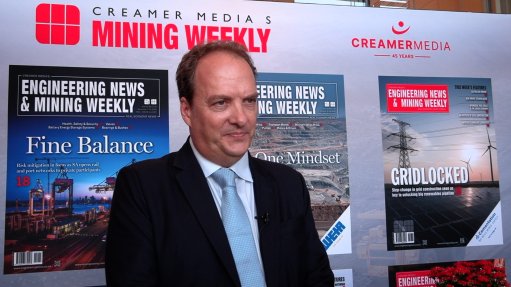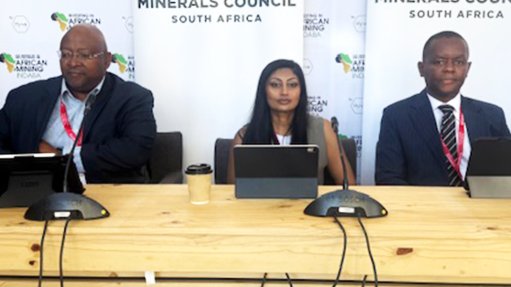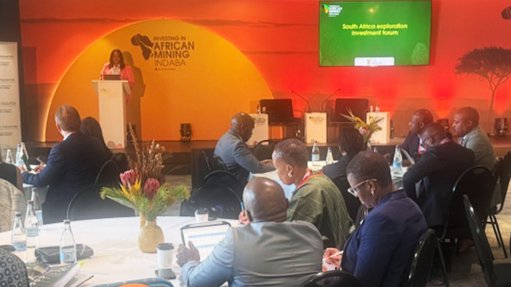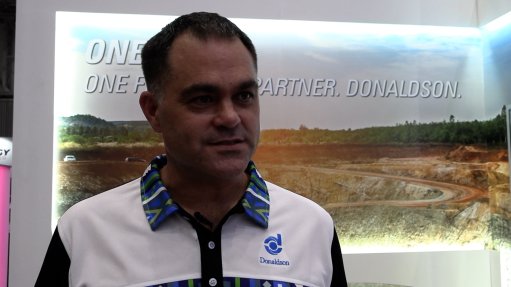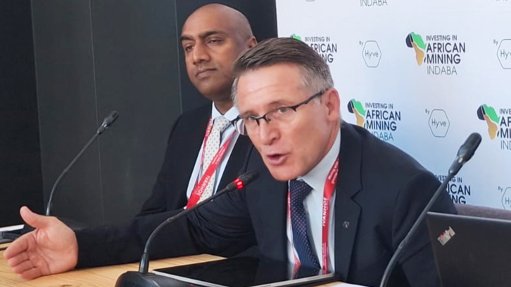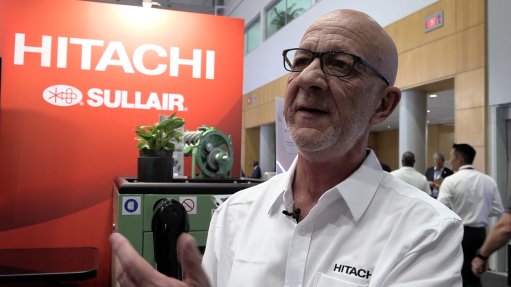Sasol progresses CMD commitments

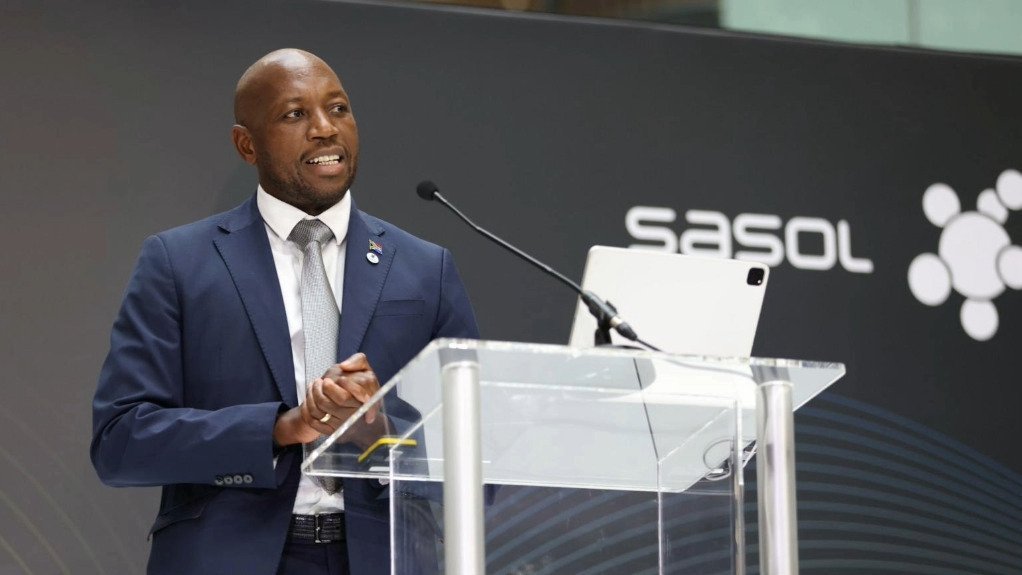
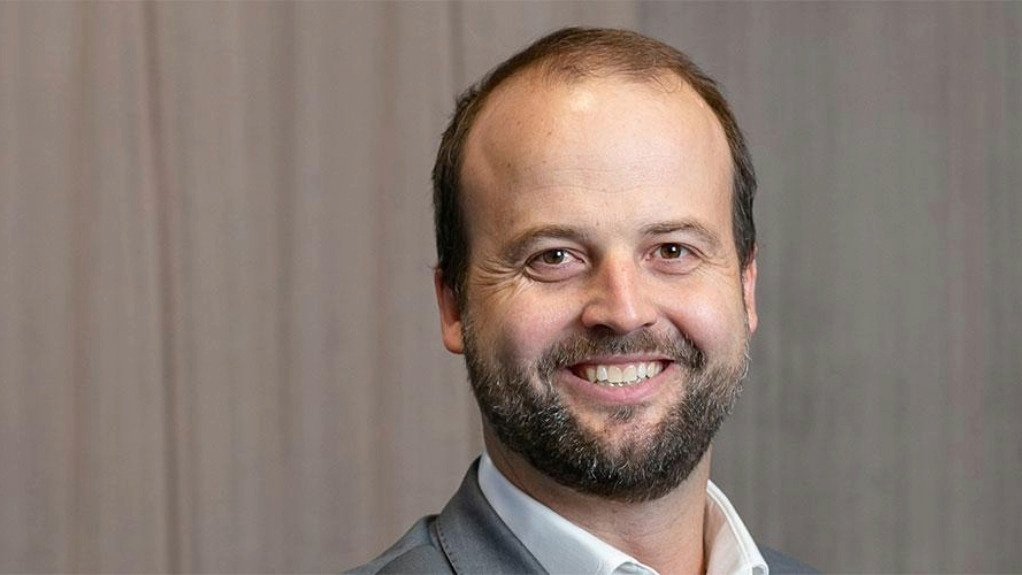
SIMON BALOYI At CMD earlier this year, Sasol outlined a clear set of FY28 deliverables, which were to restore the reliability and competitiveness of our Southern Africa value chain, drive margin improvement in the international chemicals business, and advance its balance and transformation agenda in a value accretive manner
WALT BRUNS Sasol has delivered pleasing results in areas within its control particularly margin realisation, managing fixed costs and optimising capital spend
In releasing its financial results for the year ended June 30, 2025, energy and chemicals company Sasol demonstrated “clear progress” in delivering against the strategy and commitments outlined at its Capital Markets Day (CMD) in May.
Sasol delivered a strong cost performance and disciplined capital management, resulting in 75% higher free cash flow compared with the prior year, despite a “challenging macroeconomic and operating environment”.
“[Financial Year (FY) 2025] has been a pivotal year for Sasol as we mark our seventy-fifth anniversary, and pursue our future with renewed purpose and a clearly defined strategy,” said Sasol president and CEO Simon Baloyi.
“At CMD earlier this year, we outlined a clear set of FY28 deliverables, which were to restore the reliability and competitiveness of our Southern Africa value chain, drive margin improvement in the international chemicals business, and advance our growth and transformation agenda in a value accretive manner. Further, we committed to prioritising the deleveraging of our balance sheet through free cash flow generation and disciplined capital allocation. Today’s results show that we are beginning to deliver on those promises, proof of our commitment to reshaping Sasol into a business that is resilient, competitive and sustainable.”
He added that Sasol’s Southern Africa operations are on track in terms of implementing initiatives that can facilitate improved reliability and cost efficiency.
Additionally, profitability in the international chemicals segment improved, despite the prolonged downturn in the chemicals market, and Sasol is continuing to progress its emission reduction roadmap at a “significantly lower capital cost” than originally anticipated.
“We are running the marathon we spoke about at CMD — with discipline, pace and unwavering focus,” he added.
Key highlights include the completed construction of the destoning plant, with start-up activities under way. The plant is on track to be fully online by the end of this calendar year. This development supports the pathway to improving coal quality, restoring Secunda Operations’ (SO) volumes and increasing cash generation, says Baloyi.
Further, National Petroleum Refiners of South Africa (Natref) has made significant progress towards achieving compliance with Clean Fuels 2 regulation through the installation of its first low-carbon boiler. The second low-carbon boiler is expected to be commissioned by the end of this month.
Sasol also achieved an oil breakeven price of $59/bbl, “in line with our target, despite lower SO volumes,” said Baloyi.
International chemicals’ adjusted earnings before income, taxes, depreciation and amortisation (EBITDA) improved by more than $120-million, from $411-million in FY24.
Adjusted EBITDA margins increased from 6% to 9%, despite the prolonged downturn in the chemicals market – evidence of Sasol’s reset initiatives and supported by more favourable pricing. The business will build on this momentum into FY26, ultimately ramping up to achieve the FY28 targets.
With regards to the Emission Reduction Roadmap (ERR), Sasol’s Optimised ERR implementation, including its target of 2 GW of renewable energy by 2030, is on track. More than 900 MW of renewable power purchase agreements in South Africa have been secured, up from 750 MW in May, together with virtual power purchases at Lake Charles, in Louisiana, setting the stage for Sasol’s long-term decarbonisation and energy resilience.
Sasol’s third renewable energy facility, the Damlaagte solar PV plant located near Parys in the Free State, came online on August 22 and is now feeding 97.5 MW of renewable energy into Sasol’s facilities.
Sasol Group CFO Walt Bruns said Sasol’s full year financial results reflect disciplined execution of the financial framework Sasol outlined in May.
“We have delivered pleasing results in areas within our control particularly margin realisation, managing cash fixed costs, which came in below inflation, and optimising capital spend. These actions are building greater resilience in our business. Importantly, they give us confidence in reaching our net debt target of below $3-billion between FY27 and FY28, enabling us to reinstate dividends and support investment in future growth and transformation.”
Highlights of the financial performance include free cash flow after tax, interest and first order capital expenditure increasing by 75% to R12.6-billion, aided by the receipt of the legal settlement payment by State-owned enterprise Transnet.
“Cash fixed costs increased below inflation through cost-saving initiatives and the balance sheet was strengthened by strong free cash flow generation. Net debt (excluding leases) reduced by 11% to $3.7-billion, and we continue to have a strong liquidity position of more than $4-billion.”
Basic earnings per share increased by more than 100% to R10.60 per share compared to a loss per share of R69.94 in the prior year, while headline earnings per share improved by 93% to R35.13 per share.
“We know there’s more to do, but we are clear on the strategic path ahead: Strengthen the foundation, unlock value, and drive our transition. The actions taken this year have laid the groundwork, with positive momentum across the business. We will continue to build on this in the years ahead,” said Baloyi.
“Our long-term ambition remains unchanged: to build a stronger, more sustainable Sasol that creates value for our stakeholders, including shareholders, people and society,” he concluded.
Article Enquiry
Email Article
Save Article
Feedback
To advertise email advertising@creamermedia.co.za or click here
Press Office
Announcements
What's On
Subscribe to improve your user experience...
Option 1 (equivalent of R125 a month):
Receive a weekly copy of Creamer Media's Engineering News & Mining Weekly magazine
(print copy for those in South Africa and e-magazine for those outside of South Africa)
Receive daily email newsletters
Access to full search results
Access archive of magazine back copies
Access to Projects in Progress
Access to ONE Research Report of your choice in PDF format
Option 2 (equivalent of R375 a month):
All benefits from Option 1
PLUS
Access to Creamer Media's Research Channel Africa for ALL Research Reports, in PDF format, on various industrial and mining sectors
including Electricity; Water; Energy Transition; Hydrogen; Roads, Rail and Ports; Coal; Gold; Platinum; Battery Metals; etc.
Already a subscriber?
Forgotten your password?
Receive weekly copy of Creamer Media's Engineering News & Mining Weekly magazine (print copy for those in South Africa and e-magazine for those outside of South Africa)
➕
Recieve daily email newsletters
➕
Access to full search results
➕
Access archive of magazine back copies
➕
Access to Projects in Progress
➕
Access to ONE Research Report of your choice in PDF format
RESEARCH CHANNEL AFRICA
R4500 (equivalent of R375 a month)
SUBSCRIBEAll benefits from Option 1
➕
Access to Creamer Media's Research Channel Africa for ALL Research Reports on various industrial and mining sectors, in PDF format, including on:
Electricity
➕
Water
➕
Energy Transition
➕
Hydrogen
➕
Roads, Rail and Ports
➕
Coal
➕
Gold
➕
Platinum
➕
Battery Metals
➕
etc.
Receive all benefits from Option 1 or Option 2 delivered to numerous people at your company
➕
Multiple User names and Passwords for simultaneous log-ins
➕
Intranet integration access to all in your organisation










